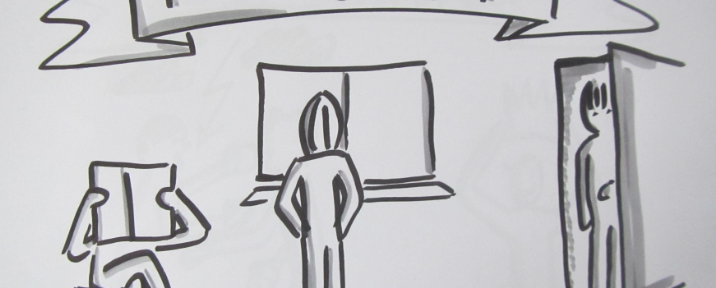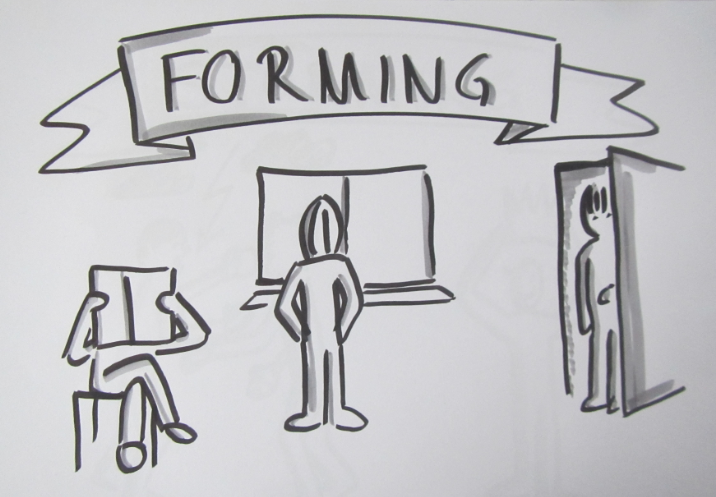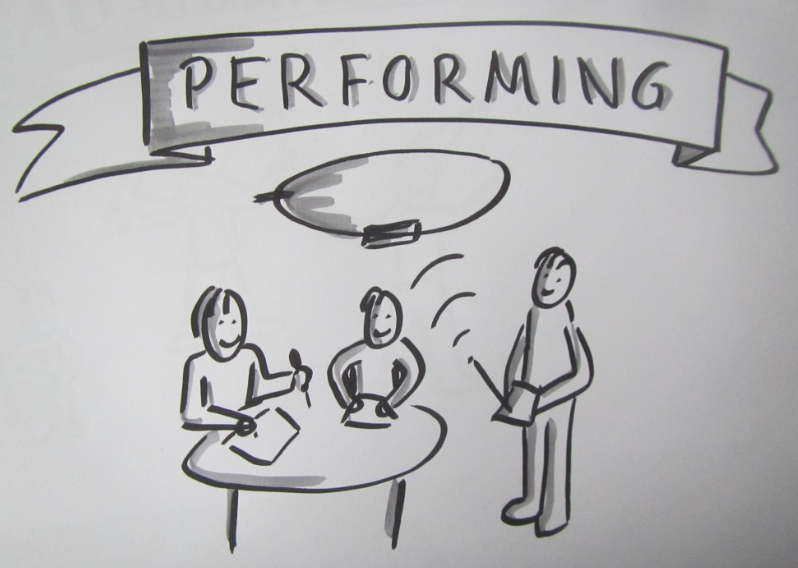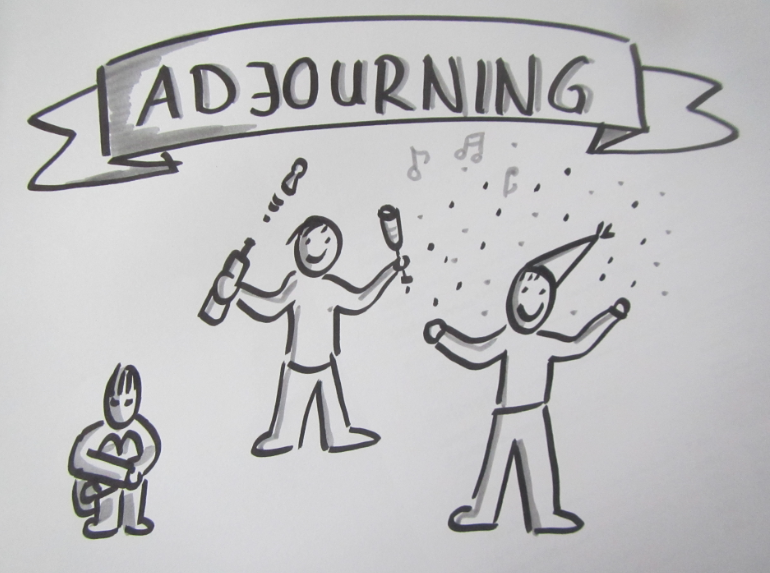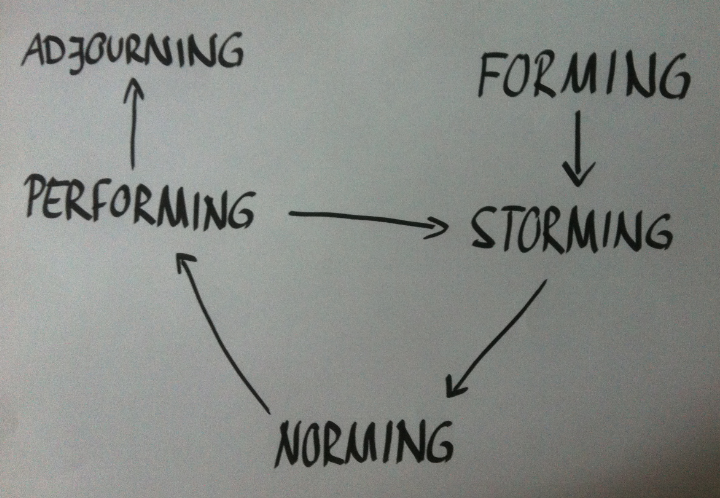Last weekend I had the chance to fill in for a colleague and help run a training course for student tutors. One of the topics was what kind of group processes they should be prepared to encounter and how to deal with them.
Here is more or less what I told them about Tucker’s 1956 model of stages of group development.
There are a couple of stages that occur with every group.
1. Forming
The forming stage occurs when a new group first meets. Everybody is a little unsure of what to expect, people are very polite and don’t quite open up. Everybody is trying to figure out what is going to happen. Trust needs to be established.
2. Storming
This is the conflict phase in the team. People start staking claims — both in terms of leadership, topics, loyalties. During this stage emotions are high, the mood of the team can change dramatically over short periods of time. The team recognizes that the task they are supposed to be working on might be harder than they thought initially, and less well defined.
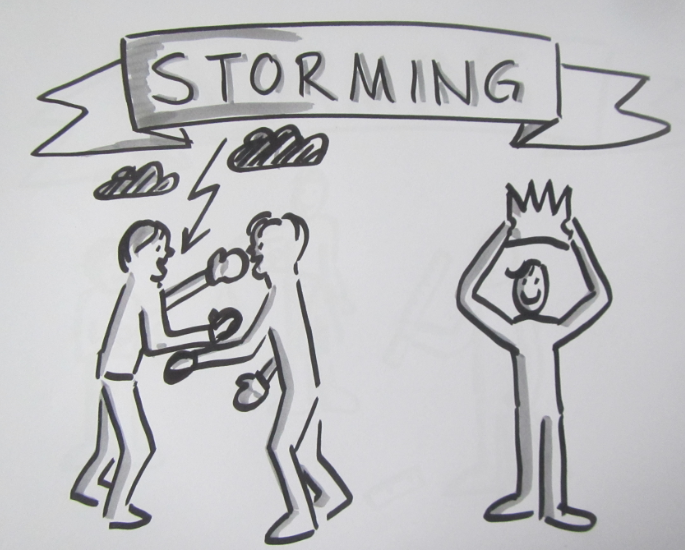
Group stage no 2: Storming.
3. Norming
When a group reaches this phase, everybody is working towards defining a common goal. Group rules are negotiated, roles filled. The group finds compromises that everybody is happy with and team members take on responsibilities for tasks.
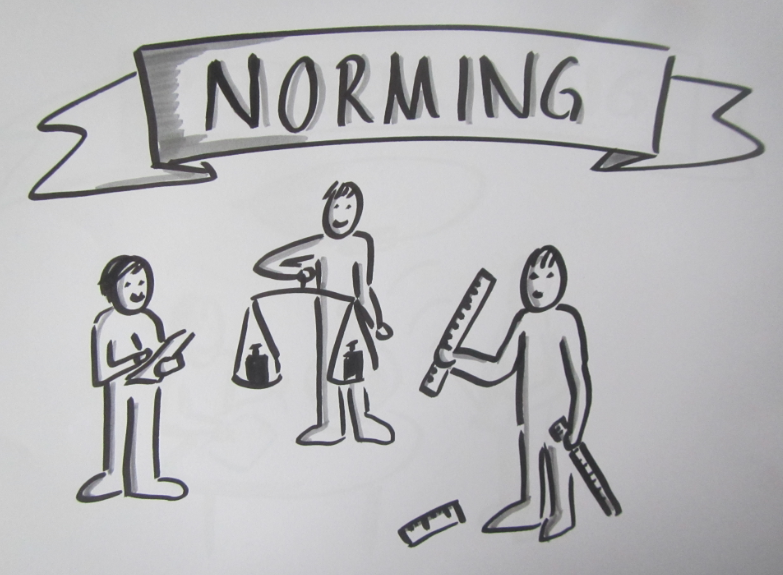
Group stage no 3: Norming.
4. Performing
After all the previous stages have been lived through, a team can reach the performing stage. Now work runs smoothly, roles are filled confidently but also flexibly. Most decisions are made within the team and there is no need for external guidance.
5. Adjourning
The task is completed and the team members are moving on to new tasks with new teams. Now it is time to celebrate the achievement! But especially if the team worked really well together, team members might be sad to be leaving.
But the thing is: These stages aren’t just passed through once. And there is no rule for how long each of the phases typically lasts.
A team that has reached the performing stage won’t necessarily perform well until the task is finished, quite often it “falls back” into a storming phase. This can happen for many different reasons. A new member might join the team, or an old one leave, opening up a role that someone else wants to claim. To get back to performing, this team now needs to go through a full storming and a full norming phase.
Another time might never leave the storming phase at all. Especially if there are personal of work style conflicts that are not adequately addressed it might be really difficult to leave this phase.
Yet, ideally we want to spend most of the time in the performing phase.
So what can a tutor do to move a group to the performing stage? That we’ll talk about in a later post! :-)
